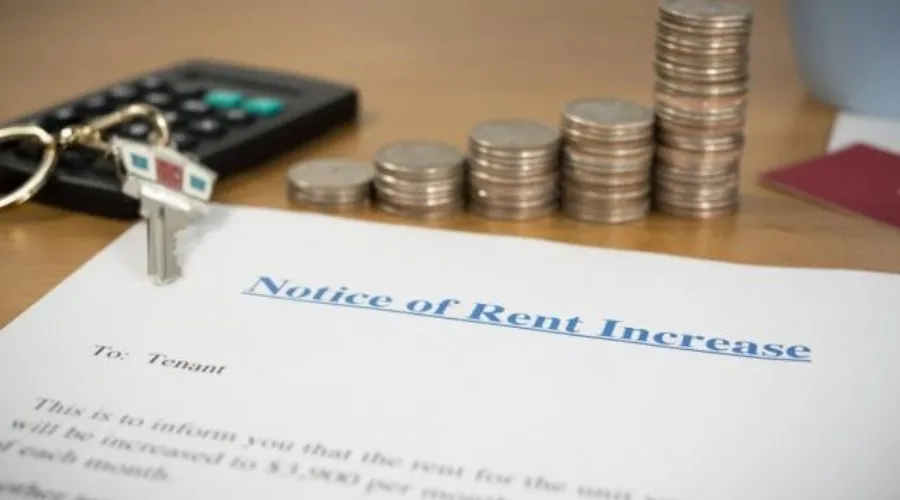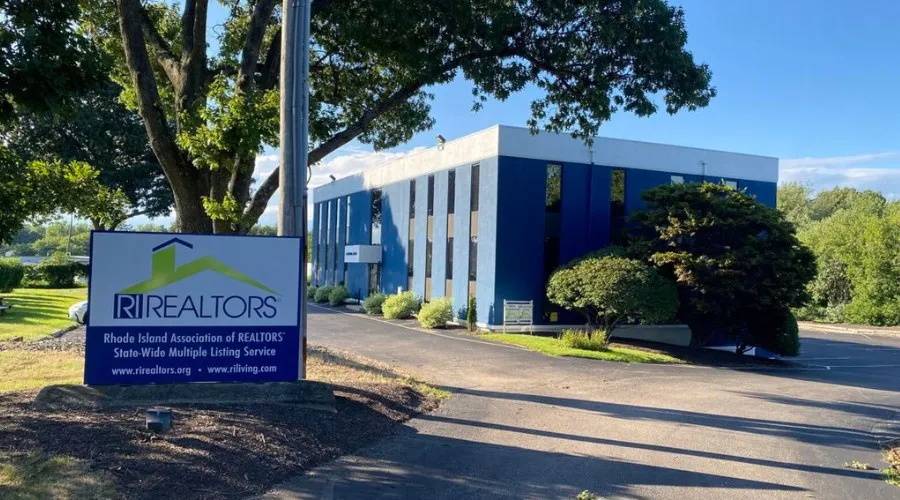Understanding Rhode Island rent control laws is crucial for landlords who want to stay compliant and protect their rental business. While the state has no universal rent control, local stabilization rules in Providence and New Shoreham add complexity. With guidance and tools from LeaseRunner, landlords can draft stronger leases, manage rent increases responsibly, and resolve disputes efficiently.
Overview of Rhode Island Rent Control Laws (as of 2025)
Rhode Island does not have state-wide laws setting rent caps. There are no fixed rent increase limits or legal rent increase rules, meaning landlords generally follow free-market principles. While lawmakers have debated rent stabilization laws and broader tenant rights and protections, most proposals for a comprehensive rent control overview have failed at the state level.
Instead, rent control ordinances fall under the state’s Home Rule Amendment, which allows municipalities to set their own policies. This creates a patchwork legal framework for rent control where only a few cities, such as Providence and New Shoreham, have adopted specific rent stabilization laws in Rhode Island, while most areas remain without formal rules. As a result, both tenants and landlords must navigate varying rent control specifics, balancing flexibility for owners with community housing needs.
Rent Increase Requirements for Rhode Island Landlords
Understanding rent increase guidelines and rent increase policies in Rhode Island is essential for both landlords and tenants. Under Rhode Island landlord-tenant laws, rules for deposits, notices, and compliance directly affect housing stability.
Security deposit
In Rhode Island, security deposits are strictly regulated under R.I. Gen. Laws § 34-18-19. A deposit protects landlords against unpaid rent, excessive damage, or cleaning costs, but it cannot be misused to bypass rent increase restrictions.
- Deposit limit: One month’s rent is the maximum allowed, with an extra month permitted only for furnished units. No additional “pet deposits” or hidden charges are legal.
- Adjustment on renewal: If rent goes up at renewal, landlords may request a prorated increase to match the new rent, but it must be reasonable and well-documented. For drafting a compliant contract, landlords can use lease agreement templates.
- Banking rules: Deposits must be kept in a separate, interest-bearing account, with interest paid annually if held longer than a year. Mixing tenant deposits with personal funds is prohibited.
- Return process: At the end of a lease, tenants must provide a forwarding address. Landlords then have 20 days to return the deposit with an itemized list of any deductions. Normal wear and tear—like faded paint or worn carpets—cannot be deducted. If deductions exceed the deposit, landlords may sue, while tenants can challenge improper withholdings in District Court and, if successful, recover double damages plus attorney fees.
Notice requirements for rent increases
The 2024 updates established a formal rent increase notification process. Landlords must provide written notice, often using rent increase notice templates, that clearly states the new amount and effective date.
- Tenants under 62: At least 60 days’ notice is required. For month-to-month rentals, notice must be given more than 60 days before the next rent due date.
- Tenants 62 and older: Require 120 days’ notice before an increase.
- Fixed-term leases: Landlords must provide 60 or 120 days’ notice before the lease ends if the increase applies to renewal. Increases cannot happen mid-term unless the lease allows it.
- Exceptions: Federal or state programs like Section 8 may set different rules, but landlords cannot shorten the period on their own. In Providence, tenants may seek mediation for excessive increases, though no rent cap exists.
Failing to follow these legal rent increase rules can trigger legal penalties for landlords, including dismissal of eviction cases, civil liability, or fines under fair housing law. Tenants may also access tenant dispute resolution services or local legal mediation services for support. To avoid missteps, landlords often use an eviction check service to confirm compliance.

Consequences of breaking the law
Failure to comply with Rhode Island rent control laws can lead to serious consequences:
- Invalid increases: Tenants may continue paying the original rent until notice is properly given.
- Tenant defenses: If landlords try to evict tenants for not paying an invalid increase, courts can dismiss the case.
- Civil liability: Tenants may sue for damages like moving costs and attorney fees.
- Discrimination penalties: Charging different rent based on race, religion, disability, age, or income source violates the Rhode Island Fair Housing Practices Act and federal law. Penalties may include damages, fines up to $100,000, and injunctions.
- Retaliation bans: Landlords cannot raise rent within 180 days of a tenant complaint, such as reporting code violations.
Landlords who repeatedly break the law risk license revocation, while tenants are encouraged to file complaints with RICH within 300 days or seek free help from Rhode Island Legal Services. For more details, check state-specific Rhode Island landlord-tenant rules.
Eviction Protections for Rhode Island Tenants
Knowing how Rhode Island protects renters is crucial for anyone in the housing market. The state protects both landlords and tenants. It ensures renters are safe from illegal practices under Rhode Island rent control laws and housing rules.
State-wide tenant protections
Rhode Island law provides tenants with protections against evictions, discrimination, retaliation, and habitability. Even without broad Rhode Island rent control laws, renters still have strong legal safeguards.
- Eviction Rules: Landlords cannot remove tenants without court approval. Valid reasons include nonpayment of rent (after a 15-day grace period and 5-day notice), serious lease violations, health or safety hazards, illegal activity, or ending a month-to-month tenancy with 30 days’ notice. Self-help evictions—like changing locks—are banned. If wrongfully evicted, tenants can sue for damages worth up to three months’ rent plus legal fees.
- Anti-Discrimination: Both state and federal law prohibit discrimination based on race, religion, gender, disability, family status, age, sexual orientation, gender identity, veteran status, or income source (such as Section 8 vouchers). Complaints can be filed with the Rhode Island Commission for Human Rights, which may lead to investigations, hearings, fines, and damage awards.
- Protection from Retaliation: Tenants cannot be punished for reporting code violations, requesting repairs, or joining a tenant union. Acts of retaliation may include eviction threats, cutting services, or rent hikes. Courts generally presume retaliation if it occurs within 180 days of a tenant’s complaint.
Local tenant protections in Providence and New Shoreham
Some Rhode Island municipalities go further with added tenant protections. Local ordinances, though separate from statewide rules, often support Rhode Island rent control laws. This helps create clearer standards for both landlords and tenants.
- Providence: The city offers mediation for rent increases, a stabilization program for older buildings, and free legal aid through its Eviction Defense Program. Source-of-income discrimination is explicitly banned, and just-cause rules apply to certain stabilized units.
- New Shoreham (Block Island): Rent increases are capped at 5% per year or the regional CPI, whichever is lower. Disputes go to local housing authorities. Eviction protections cover retaliation and habitability issues.
- Right to Habitability: Rental units must follow health and safety codes. This includes having working utilities, proper locks, and smoke detectors. For older buildings, landlords must also address lead hazards. If repairs aren’t made within 20 days of written notice, tenants may withhold rent in escrow, repair and deduct costs, or, in some cases, terminate the lease.
Organizations for tenant protections in Rhode Island
Several groups provide free or low-cost resources for renters, including:
- Rhode Island Legal Services (RILS): Eviction defense and habitability disputes.
- Rhode Island Center for Justice (RICJ): Advocacy and tenant education.
- Housing Network of Rhode Island (HNRI): Policy reforms and renter aid referrals.
- Rhode Island Commission for Human Rights (RICH): Anti-discrimination enforcement.
- HousingWorks RI: Eviction diversion and habitability counseling.
- RI Coalition Against Domestic Violence: Housing support for survivors.
Best Practices for Renters to Negotiate Rent Increases
Rent hikes can be stressful, especially in a state with little rent control. Rhode Island rent control laws apply only in Providence and New Shoreham. But tenants across the state can still use smart strategies to manage their housing costs.
Verify whether the rent increase is reasonable
Tenants should first see if the increase fits local market conditions. They should also check the legal notice rules. Rhode Island law requires either 60 or 120 days' notice based on age. Also, any increases can't be discriminatory or retaliatory. If the amount seems too high, tenants can ask for an explanation or file a complaint with the Commission for Human Rights.
Evaluate landlords’ property improvement
Landlords often point to upgrades to justify higher rent, but not all improvements qualify. Tenants should ask for receipts or permits and verify whether changes are significant or just routine maintenance. If the upgrades were legally required for habitability, they may not justify a steep increase.
Propose alternatives
If the rent hike feels unaffordable, tenants can suggest compromises like signing a longer lease for stability or phasing the increase over time. They should also highlight their reliability as renters, which can give leverage in negotiations. Such approaches often help balance both parties’ needs.

Next steps if negotiation fails
When talks fail, tenants can still protect their rights. They can seek legal aid or file formal complaints. Low-income renters can get free help from Rhode Island Legal Services. Others might look into relocation programs. In serious habitability cases, escrow rent might be an option. However, it's important to seek legal advice first.
Stay updated on new Rhode Island rent control laws
Because Rhode Island has no statewide rent caps, staying informed is essential. Providence offers mediation programs, and New Shoreham limits increases above 5% or CPI. Advocacy groups and resources like RIHousing help tenants track new proposals and protect their rights.
Practical Tips for Landlords to Resolve Tenant Disputes
Tenant disputes are common in Rhode Island, especially with the mix of statewide rental laws and local rent stabilization rules in places like Providence and New Shoreham. While there is no statewide rent control, understanding Rhode Island rent control laws and applying proactive strategies can help landlords resolve conflicts faster and maintain good tenant relationships.
1. Craft a clear lease agreement with tenants
A strong lease agreement is your first defense against misunderstandings. Clearly outline rent amounts, due dates, late fee policies (capped at 5%), and responsibilities for repairs and utilities. Rhode Island law requires notice to end leases: 30 days for month-to-month leases and up to 120 days for seniors over 62.
Avoid illegal terms. Include required disclosures, like lead paint for older units. Also, follow security deposit rules. Simplifying the lease for tenants helps avoid confusion and cuts down on future disputes.
2. Use mediation services
Mediation is a budget-friendly way to resolve rent hikes, habitability problems, or lease violations. It helps avoid long court fights. In Providence, tenants can ask for mediation if rents rise too much. New Shoreham deals with disputes related to the 5%/CPI cap.
Come prepared with documents like leases, payment records, and repair receipts. Flexible solutions, like phased rent increases, help keep tenant relationships strong.
3. Join a landlord association in Rhode Island
Associations like the Rhode Island Association of REALTORS® and the Rhode Island Property Owners and Managers Association offer resources, legal updates, and peer support. Members access model leases, eviction forms, and news on housing laws, like possible rent caps. Staying active in these groups helps landlords keep up with Rhode Island rental laws. They also learn practical ways to avoid disputes.

4. Seek advice from Local Housing Authorities
Local housing agencies, like the Providence Housing Authority and RIHousing, help with compliance, tenant complaints, and rental assistance programs. They help landlords understand Section 8 voucher rules. They also assist with mediation for rent or repair disputes. Contacting these agencies early can stop complaints from turning into legal fights. It also shows good faith in solving problems.
5. Consult with a landlord-tenant attorney
If conflicts include evictions, discrimination, or retaliation claims, it's best to hire a landlord-tenant attorney. Attorneys help with eviction notices that meet Rhode Island law. They also defend against tenant claims and negotiate settlements. This can save time and money.
Legal guidance matters in disputes over habitability issues or claims of retaliation by tenants. Many attorneys offer low-cost initial consultations, making it worth seeking advice early.
Conclusion
Rhode Island rent control laws don't have statewide coverage. However, Providence and New Shoreham have local stabilization rules. So, landlords need to stay informed and proactive. Clear lease agreements, mediation, and expert advice can stop conflicts. They also protect landlord-tenant relationships.
Landlords can use LeaseRunner for various purposes. These include customizable lease agreements, tenant screening, and legal insights. These resources help them stay compliant and manage properties confidently.
FAQs
Q1. Does Rhode Island have statewide rent control laws?
No. Rhode Island does not have statewide rent control. Providence and New Shoreham have local rent stabilization laws. These laws limit rent increases in specific situations.
Q2. How much notice must landlords give for a rent increase in Rhode Island?
Landlords must typically give 60 days’ notice before raising rent, and 120 days if the tenant is over 62. Local rules in Providence and New Shoreham may require additional steps.
Q3. Can tenants request mediation for rent disputes in Rhode Island?
Yes. Tenants in Providence can ask for mediation from the city’s Housing Office. In New Shoreham, mediation is offered if landlords seek rent increases over the 5%/CPI limit.
Q4. What resources are available to Rhode Island landlords for compliance?
Landlords can check with RIHousing or local housing authorities. They can also join groups like RIAR or RIPOMA. Online platforms such as LeaseRunner also offer legal forms, tenant screening tools, and compliance resources.



